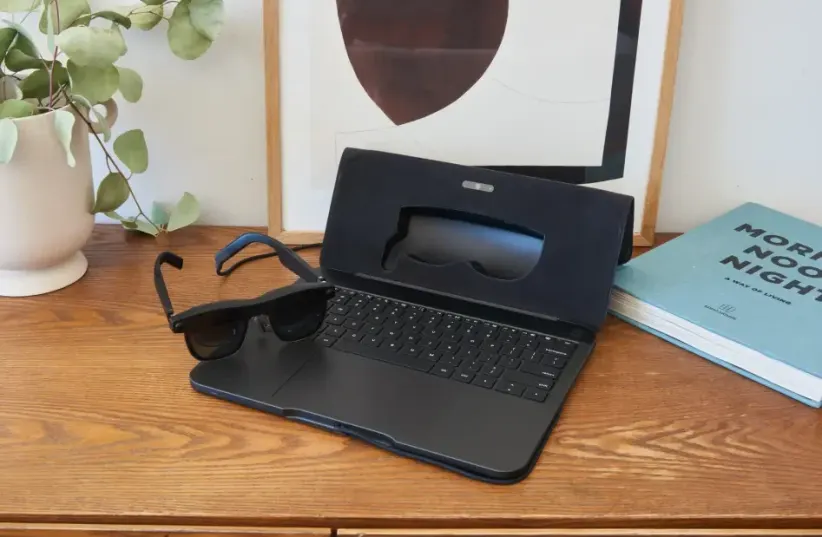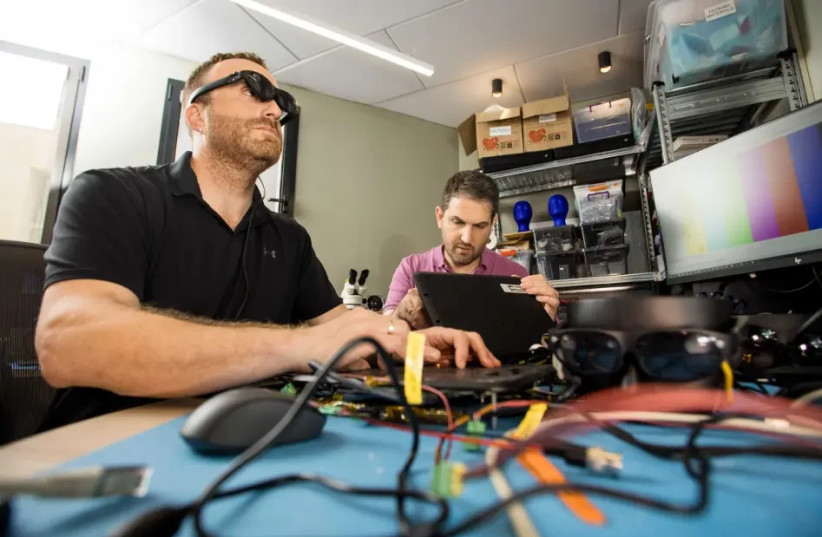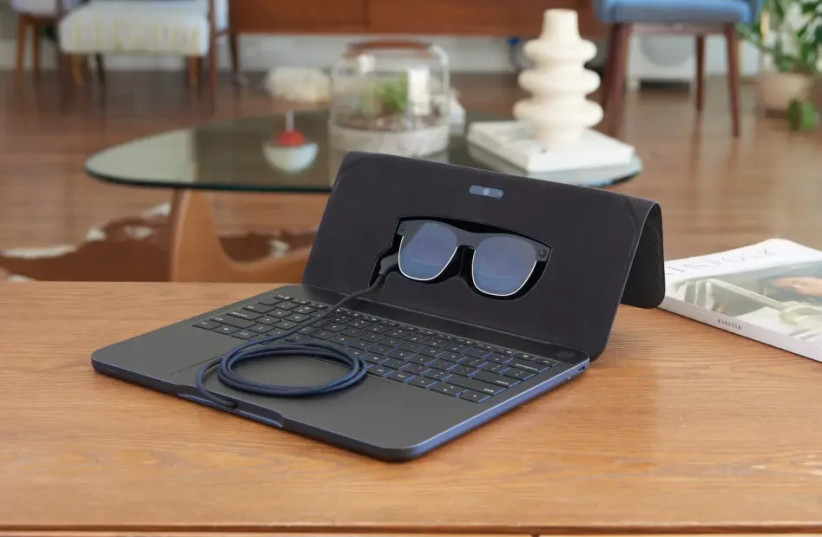For the first time globally - a spatial laptop - Sightful will begin selling the product in the US; the consumer price - $1,900; the G1 is the world's first laptop of its kind based on augmented reality; Tamir Berliner, CEO and co-founder: "It's not reasonable for people to remain stuck with a 14-inch screen. We aim to change the 'world of mobile work,' and that's why we invested all our resources in developing every part of the product to seamlessly integrate into our daily lives - something no other company has achieved."
Sightful, an Israeli company, unveils its groundbreaking product after three years of development and tens of millions of dollars in investment: the Spacetop G1, a laptop without a physical screen that includes augmented reality glasses and a spatial view of 100 inches. For the first time globally, Sightful will sell this product in the US, priced at $1,900 for consumers. The G1 is the world's first laptop based on augmented reality technology. Tamir Berliner, CEO and co-founder, states, "It's not reasonable for people to remain stuck with a 14-inch screen. We aim to change the 'world of mobile work' and that's why we invested all our resources in developing every part of the product to seamlessly integrate into our daily lives - something no other company has achieved."
Sightful, which unveiled the innovative product a year ago, announces the commercial launch of the Spacetop G1. The product is available for pre-order for $100 deposit and will be shipped to customers later this year for $1,900. The G1 is a powerful laptop that combines user-friendliness with the potential of augmented reality. It offers users a virtual workspace of 100 inches, replacing the familiar 14-inch LCD screen. This marks a monumental paradigm shift in the laptop market, aiming to make "Spatial Computing" the new standard in the laptop industry.
Sightful, founded in June 2020 by Tamir Berliner and Tomer Kahan, has raised $61 million in funding so far. Berliner, a co-founder of PrimeSense, and Kahan, a former executive at N-trig, bring a wealth of experience to the company. The company employs about 60 people in Tel Aviv, New York, Taiwan, and Singapore, specializing in computer vision, artificial intelligence, product management, UX/UI, core software, cloud computing, marketing, and more.
In May 2023, Sightful successfully launched the Spacetop in Early Access to selected users to gather feedback, reviews, and insights to upgrade the hardware and operating system, SpaceOS, for the wider audience.
The G1 emphasizes strong performance and high efficiency, with features such as 8 hours of battery life, 48 TOPS of AI computing power, a new Qualcomm chip set 70% faster than the previous generation, a refresh rate of 90 Hz, and built-in artificial intelligence functionality - all with a virtual screen size of 100 inches.
These features, combined with a slim profile and lightweight design (1.4 kg), allow users to carry it anywhere while enjoying a display up to 10 times larger than traditional laptops. The G1's augmented reality glasses have also been upgraded to be more stylish, lightweight, and suitable for full-day use. The modern yet understated design helps users integrate into their surroundings, making their work stand out - rather than the glasses themselves.
Additionally, an automatic adjustment mechanism in bright or dim work environments improves focus and provides text readability without compromising screen brightness, offering a better screen brightness than any other laptop in the world.
Berliner states, "We launched the G1 to free people from the constraints of time and space and to liberate the laptop industry from screen dependency. We believe in the power of augmented reality. Physical reality has always been a limiting factor in realizing the full potential of augmented reality - bulky and uncomfortable headsets, limited battery life and processing power, and a world not yet built for daily use of augmented reality. That's why we invested all our resources in developing hardware and software that seamlessly integrate into our daily lives - something no other company has achieved."
According to Berliner, "All the tech giants in the world have clearly stated that they see spatial computing as the future - and we are the first to bring it to the present."


